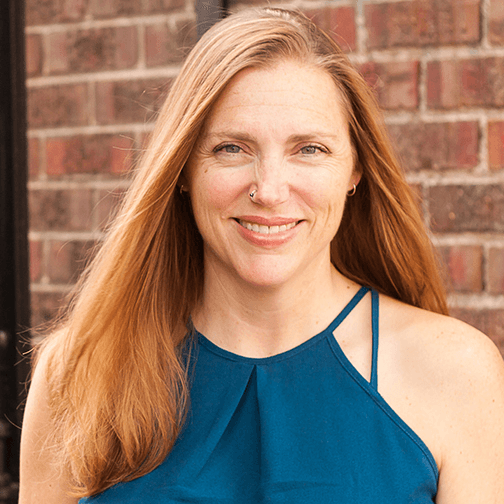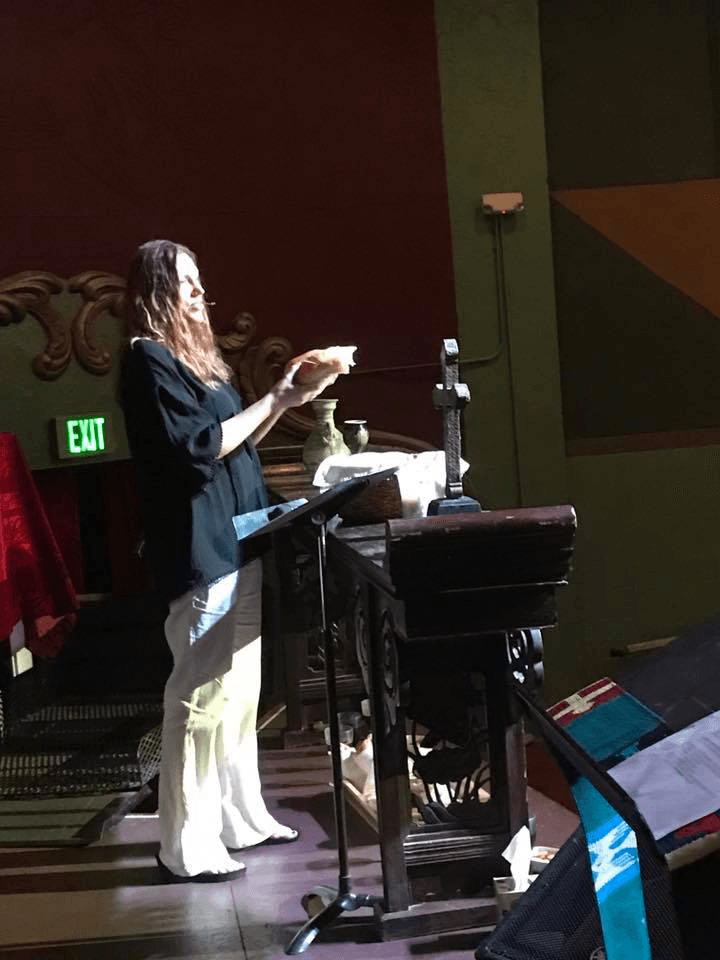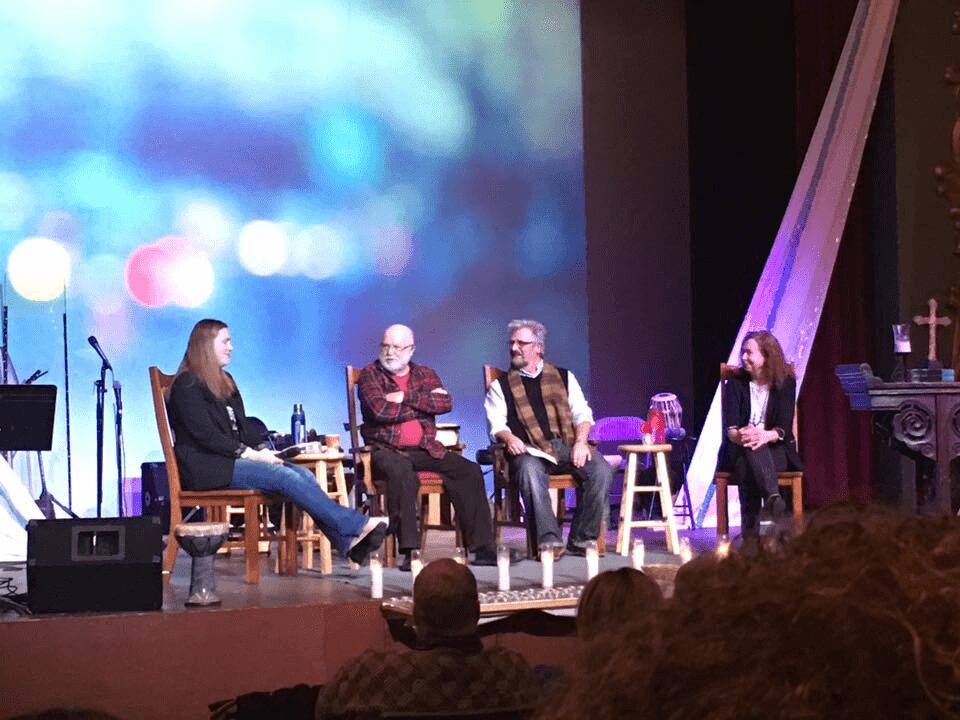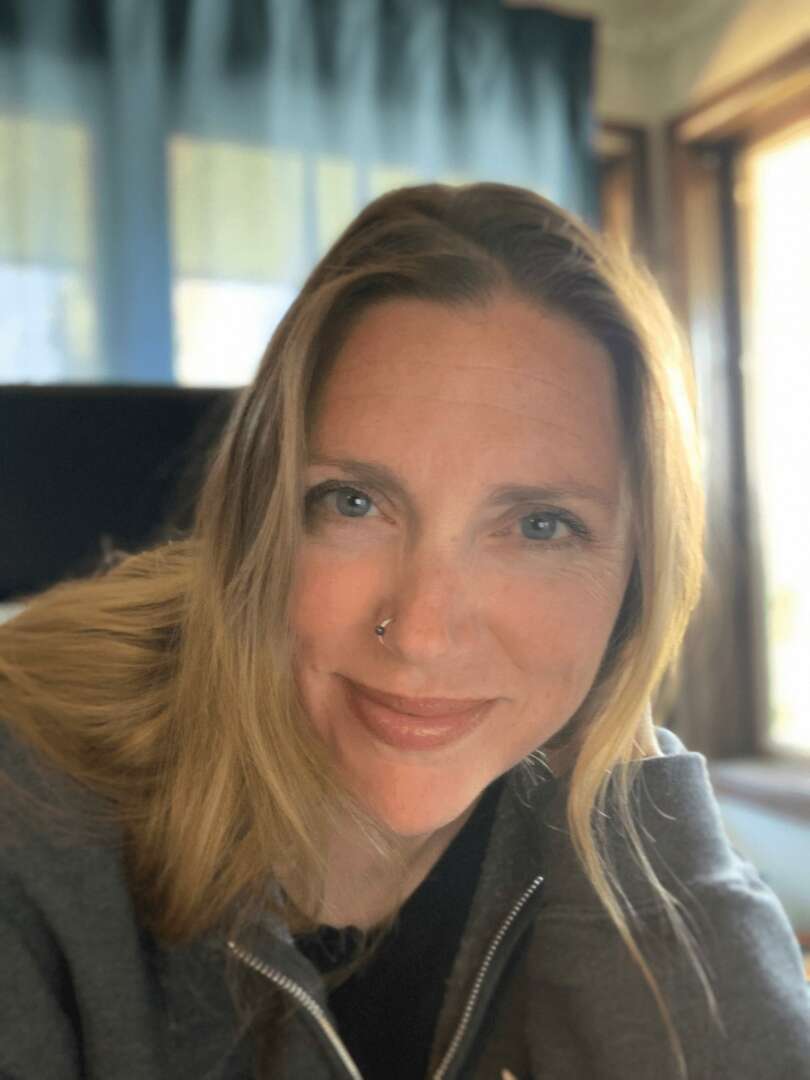We recently connected with Rachael McClair and have shared our conversation below.
Alright, Rachael thanks for taking the time to share your stories and insights with us today. Have you ever had an amazing boss, mentor or leader leading you? Can you us a story or anecdote that helps illustrate why this person was such a great leader and the impact they had on you or their team?
My best mentor is also my ministry partner (so not my boss). We have been co-pastors for fourteen years and she will be retiring in October of this year. While she’s never been my boss, Rev. Dr. Jenny Morgan has been an incredible leader to me. She saw in me so much more than I would have known about myself – and she saw it because she’s always looking for the strengths and gifts within people. Very regularly, she will pause during a meeting and speak out loud how someone just exercised incredible wisdom, or led from their particular gift. She knows that as important as it is to get through the agenda, it’s more important that people know and hear reflected back to them when they’re doing something really well.
When Jenny and I first met, our church was only about six months old. She was finishing her doctorate and seeking ordination through another church, but was looking for a place where she could play the drums – her first love. As the worship pastor, my role was to lead the eclectic and high-energy music in our worship services. Jenny joined our group of musicians, playing about once or twice a month. And on those Sundays, in addition to playing drums, she was doing the other thing she does best – watching and noticing the gifts of the leaders. She joined our little staff team after about eight months, and began naming to me all the ways she sees me exercising my leadership gifts. I tend to be someone who doesn’t need to be in charge, but will step in when needed. I’m a gifted vocalist who doesn’t seek out the spotlight. And in many ways, especially then, I tended to minimize my voice or importance to the community that we were building.
Jenny didn’t push me to be someone I wasn’t – instead she continued to call me forward into the leader I actually am. I am a great collaborator because I don’t need the spotlight and love to share the platform with others. I am a peacemaker who sees the many sides of an issue and can help folks find common ground. As a leader of a diverse community of people, this can be a really important asset. Soon after Jenny joined our staff team, we shifted our leadership model to be a co-pastor model of three: myself, Jenny, and our (now retired) founding co-pastor Mark Tidd. Until that moment, it had never occurred to me that there would be a place for me at that leadership level in a church.
Jenny calls and encourages leaders everywhere she goes. It would be easy to find fifty people in our community who could share similar experiences where Jenny saw their strengths and lovingly called them into it. She is always noticing and always using her voice and her power to empower people. I don’t use the word ‘always’ often – it can feel like an exaggeration. But in this case, it is an accurate word. I can’t think of a meeting when Jenny didn’t pause to acknowledge someone’s contribution. I believe this aspect of her presence will be the most missed when she retires this fall.
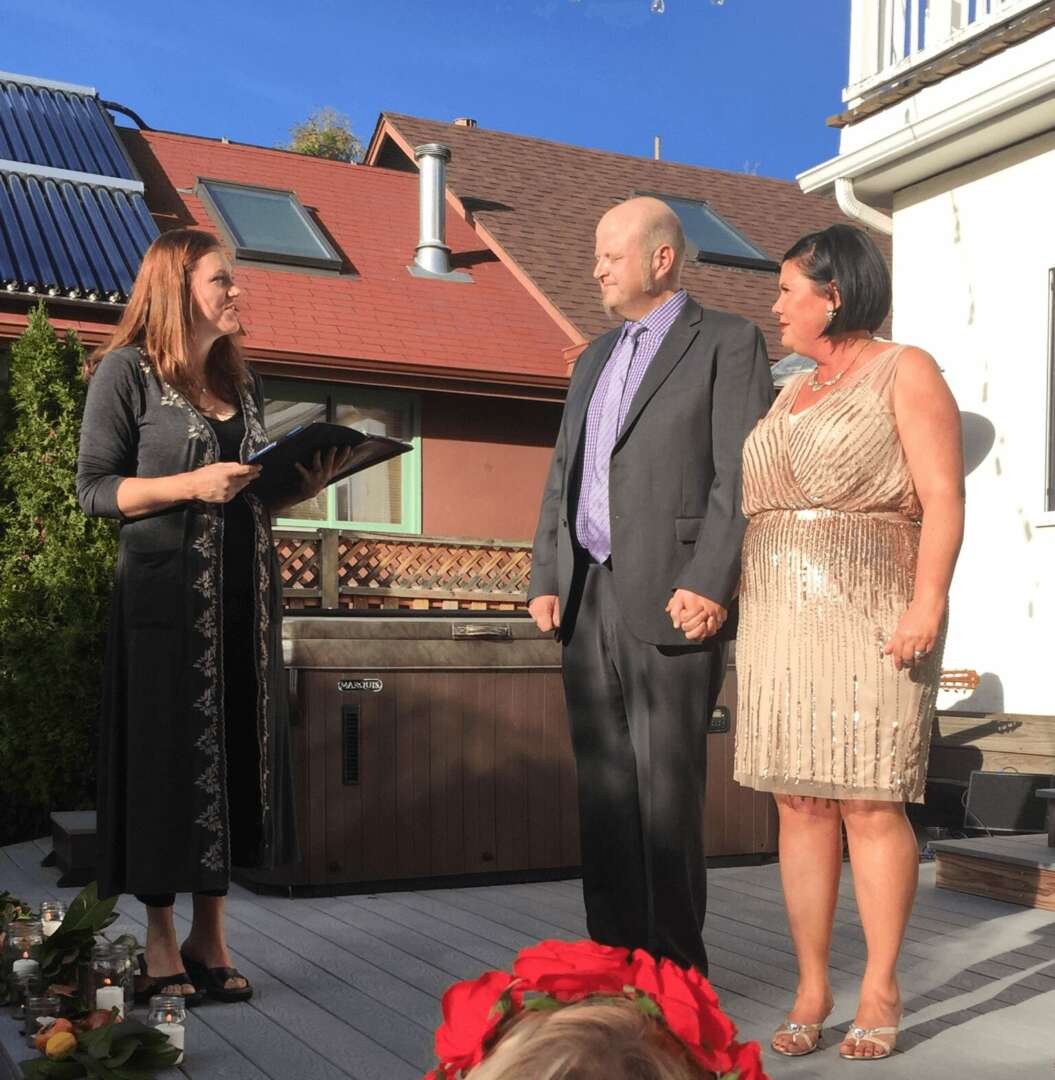
Awesome – so before we get into the rest of our questions, can you briefly introduce yourself to our readers.
My name is Rev. Rachael McClair. I am a pastor, spiritual director, leadership coach, musician and mom. I’ve worked as a pastor for nearly twenty-five years, fifteen of which as the co-pastor of Highlands Church Denver. Highlands is a fully affirming (of LGBTQ+ people), progressive Christian church committed to racial justice. For fifteen years, we’ve been establishing a legacy of spiritual healing and a new kind of ‘normal’ for people who love God and are a part of the LGBTQ+ and straight-ally community. We practice a ‘christo-centric universalism’ that centers on the person of Jesus and the kind of mind-boggling grace he came to show the world. Folks from different faith backgrounds feel at home at Highlands because we are together working to understand how expansive God’s love is, rather than determining who’s in/out. (In fact, we’re sure there is no ‘out’ of God’s love.) Highlands has been a balm for so many who’ve been hurt by previous religious experiences. One of the things I am most proud of is the way we value healthy relationships by putting into practice the adage ‘HOW we do what we do is AS IMPORTANT as what we do.’ It requires us to slow down and take care of each other, rather than racing ahead to get the next thing done.
I feel like my personal calling in the world is to help remove obstacles that have been placed between a person and God. I know that might seem abstract, but it can look like de-mystifying prayer, helping someone understand their own journey, or providing a theology that better represents what grace actually looks like. I do this in my preaching, in leading worship, and in one-on-one pastoral care or spiritual direction sessions. Spiritual direction is all about listening together to one’s life in order to notice where God is working in love. As a listener, I have the privilege of seeing God at work and helping someone listen to and value their own experience. In addition to my time at Highlands, I started an organization called Rio Grande Soul Care and I also offer coaching through LaunchPad Partners.
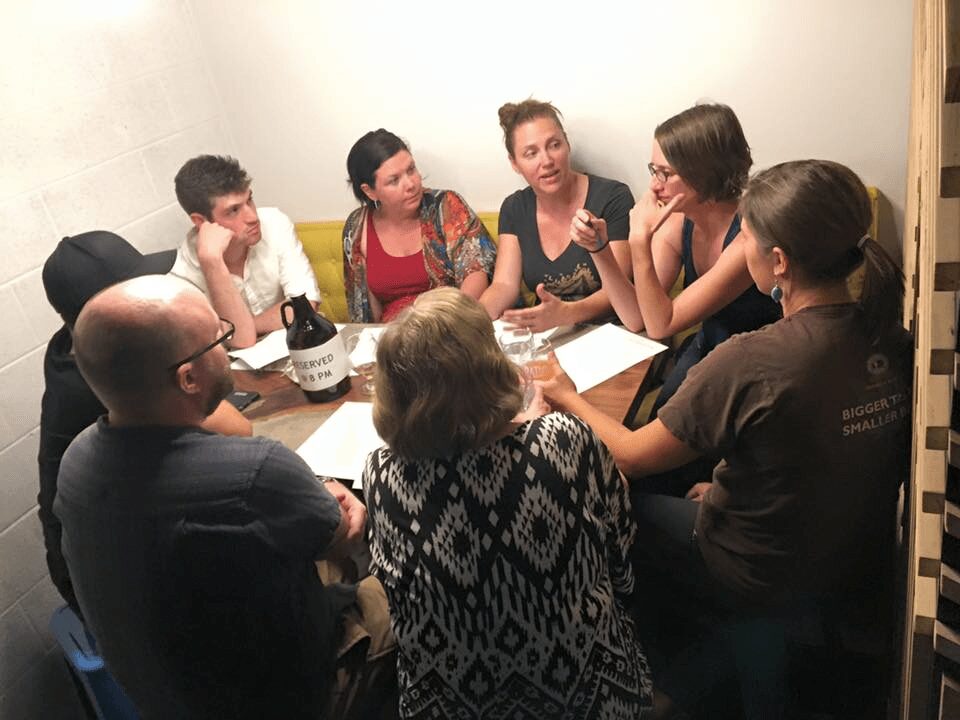
Any advice for managing a team?
In the past, I have worked for leaders who maintain a “Get on board or get out of the way” kind of mentality… leaders who value ‘success’ at any cost. This is not unusual in a lot of industries, but in a spiritual setting like church leadership, it’s terrible. After a particularly difficult departure from a toxic leadership environment, I walked away with a deep conviction that HOW we do what we do is as important as what we do. The HOW is the culture, the heartbeat of the place. And no matter how much time and resources you put into your outward facing brand, the interior culture will seep through and folks will know whether what you’re peddling is actually how you live and breathe. Especially in faith-based organizations.
One of the best things we did very early on as we planted Highlands Church was to establish what we call our Community Covenant. It is essentially a set of relational agreements we make within our staff team as to how we would work together. Under Co-pastor Jenny’s leadership, we named things that were important to us, like “Do what you say you’re going to do.” “Keep short accounts” – meaning, address annoyances and problems as soon as you are able, rather than letting those grievances build up. Every couple of years, we revisit the list to ensure it still reflects how we choose to be together. Years ago, a few of our BIPOC-identifying members named that “Speak in turn” (by which we meant “don’t interrupt each other”) didn’t sit well with them. They understood the intent – particularly because in many contexts they are often on the receiving end of being interrupted in meetings. But the phrase “speak in turn” felt more like “know your place” – another oppressive white-supremacy-cultural norm. So we changed it to “Listen with curiosity to understand” and “Be aware of how much space you’re taking up.”
Valuing the “how” takes more than a nice document laying out agreements. Without a strong commitment from the leadership to regularly talk about the set of agreements and actually practicing the hardest parts of it, the document will only ever be aspirational. For us as leaders of a spiritual community which is trying to embody things like grace, compassion, and even healthy anger, living this Community Covenant of ours shouldn’t be optional, so we have lived as though it isn’t.
And in a staffing structure of shared, collaborative leadership, this Community Covenant is essential. I think the failure of shared leadership systems come down to a lack of commitment to some set of values which calls us outside of our baser instincts of wielding power when things aren’t going the way we want them to. As an example, I am an easy-going person, generally inclined to share power and go with the flow. It can be difficult for me to speak up when my opinion differs from the group, but then I resent the group when I choose not to speak up. My resentment manifests quickly as passive-aggressive energy, which is my way of trying to get what I want. So – my commitment to living within our Community Covenant means I am faithful to “Everyone’s perspective is needed” by speaking up, even when I’m afraid it’ll cause conflict. By doing this, I am also not allowing grievances or resentment to build up. I could give a million examples of how the Community Covenant calls me to maturity and valuing relationships over getting my way, or just getting sh*t done (which is also a priority to me).
Because the co-pastors were the first to lean into the Community Covenant, the rest of the staff team began to trust it as well. And from there, more and more of our community members have embraced this for themselves. I know of folks who have our Community Covenant printed out and posted on their refrigerators because they find it helpful within their primary relationships.
I am absolutely convinced that Highlands Church – with our model of shared, collaborative leadership – is only here today as a healthy organization because of our commitment to our Community Covenant. It is the lifeblood for us.
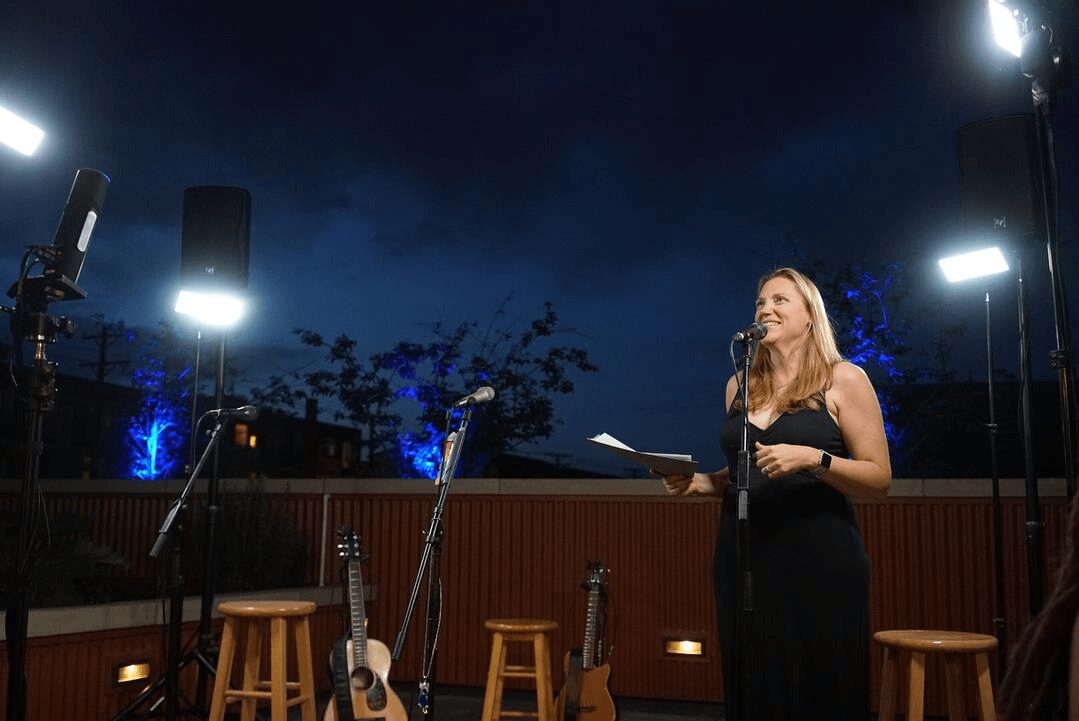
Are there any books, videos or other content that you feel have meaningfully impacted your thinking?
Because we are such a highly-relational kind of organization and staff team, the Enneagram has been a really helpful tool for us. If you’re unfamiliar, the Enneagram is a personality test that is unlike any other that you might have used. The Enneagram is more of a mirror to your soul – to your deepest motivations which manifest as behaviors. But it’s not about the behaviors – it’s about the “why” behind them. The Enneagram taps into the ways you learned to survive in the world – it shows you the strengths of that survival mechanism, and it shows you the dark side of it. And this is why it’s such a different kind of tool. Having a mirror held up to your dark or shadow side isn’t a particularly pleasant experience. But it pinpoints exactly – EXACTLY – where we need to grow and mature.
The Enneagram is a deeply personal tool and shouldn’t ever be used against someone. But if, as a team, each person has worked with the Enneagram to better understand why they see the world and behave the way they do, it can be an incredibly helpful way of understanding each other. As an example, I am an Enneagram Type 9, a ‘peacemaker.’ The way this manifests for me is that, because I grew up in a somewhat chaotic household with older siblings, I learned to sit back and go unnoticed. I learned how to see all the sides of an argument and to use that to help make peace among the warring factions, so to speak. This makes me a great collaborator, but it can also mean that I don’t always know my own opinions on things. It can take me much longer than others to figure out what I really think about a situation, instead of what I understand everyone else thinks. Knowing this about myself helps me to be patient with myself as I figure it out, and it helps me ask for others to be patient with me as well.
Within my staff team, the Enneagram is a helpful communication tool. I never get to use it to box someone in to their Type – but they can use it to better explain where they are coming from, how they are struggling, or what they need in a particular scenario. It’s a tool that takes time for each person to spend with it, reflecting on their own story and experience. If you have a team willing to do this kind of introspective work, the Enneagram can be tremendously helpful both in service to the team and to the development and growth of each person.
Contact Info:
- Website: https://hchurchdenver.org
- Instagram: https://www.instagram.com/riograndesoulcare/
- Linkedin: https://www.linkedin.com/in/rachael-mcclair-06b87b1b/
- Youtube: https://www.youtube.com/c/HChurchDenver
- Other: For more info on the Enneagram: https://www.enneagraminstitute.com/Curious about Highlands Church’s Community Covenant? https://hchurchdenver.com/covenant/
